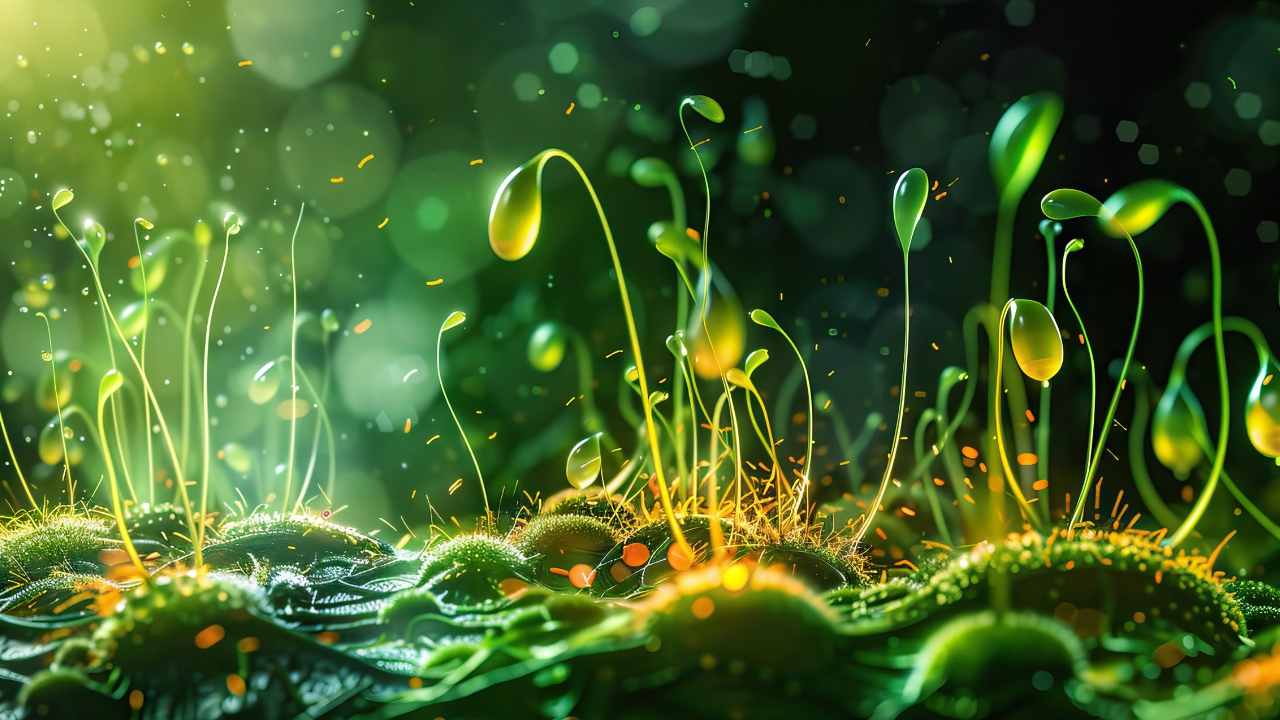
Advancements in Plant Biotechnology with AI
Plant biotechnology has taken center stage as the food and beverage, dietary supplement, and sports nutrition industries explore innovative solutions to produce sustainable and high-quality plant-derived ingredients. In particular, plant cell cultivation—aided by artificial intelligence (AI)—has emerged as a cutting-edge method. This approach allows for the rapid production of bioactives, providing industry players who seek greater consistency, scalability, and environmental sustainability with a superior alternative to traditional agriculture.
Overcoming the Limitations of Traditional Agriculture with Plant Cell Biotechnology
Traditional agriculture has been the backbone of plant-based production for centuries, yet it comes with inherent limitations:
- Land Use: Farming requires vast amounts of land, often leading to deforestation and loss of biodiversity.
- Resource Inefficiencies: Fertilizers and pesticides are necessary to maximize yield, which can negatively impact the environment and final product.
- Unpredictable Yields: Climate change, soil degradation, and pests introduce a high degree of variability in crop production, impacting both quality and quantity.
- Lengthy Growth Cycles: Depending on the plant species, it can take months or even years to grow a crop to harvestable maturity, limiting scalability and, thus, the ability to adjust to fast changes in demand.
- Labor Shortages: Due to an evolving workforce that is increasingly unwilling to take on manual farm labor in remote locations, many agricultural operations are facing significant labor shortages, further complicating production and scalability.
With growing concerns around climate change, soil health, and resource scarcity, industries are actively seeking alternatives that overcome the limitations of traditional farming. Plant cell cultivation, enhanced by AI, is a powerful alternative that eliminates the need for vast land and resources by cultivating plant bioactives in controlled environments, free from pests and climate variability. This approach offers consistent, scalable production with shorter growth cycles, all while reducing environmental impact and dependence on manual labor.
AI and Plant Cell Culture: A Powerful Combination
Artificial intelligence is revolutionizing plant cell culture by rapidly optimizing cultivation processes. Here are some specific examples showing how:
- Gene Discovery and Metabolic Engineering
AI, particularly machine learning, is accelerating the process of gene discovery, allowing scientists to understand the biosynthesis, regulation, and transport of key plant molecules. This not only helps optimize the production of known compounds but also aids in discovering new bioactive molecules. Using AI-driven analysis, companies like Ayana Bio can pinpoint the genes responsible for desirable traits and select for optimized metabolic pathways to enhance the production of key metabolites. This deep understanding of cellular mechanisms allows the engineering of select plant lines with highly efficient metabolic profiles.
- Targeted Compound Production with Precision
AI-powered modeling and simulations teach researchers how to adjust medium and process conditions to fine-tune the production of specific bioactive compounds. The use of metabolomics allows researchers to analyze the plasticity of metabolite production under variable conditions, leading to the identification of optimal cultivation strategies. This targeted approach results in enhanced production of compounds like antioxidants, polyphenols, carotenoids, and flavonoids—all without the need for genetic modification.
- Enhanced Screening and Condition Optimization
One of the unique aspects of Ayana Bio’s plant cell optimization process is its ability to screen conditions in parallel, and correlate datasets across the central dogma of molecular biology. With AI, the screening process is taken to new heights, enabling multi-omics approaches that incorporate genomics, transcriptomics, and metabolomics. These data are analyzed through machine learning to optimize media and cell line pairings, ensuring the most productive and resilient lines, media compositions, and process groupings are selected for cultivation.
- Faster, Data-Driven Insights
Traditional plant cell culture requires extensive trial and error to determine the optimal conditions for the production of desired metabolites. AI accelerates this process by analyzing vast datasets from plant cell cultures, helping identify the ideal environment for specific outcomes. With machine learning, companies can quickly evaluate the impact of various conditions on gene expression and metabolite production, significantly reducing the time and labor required to produce desired bioactives. This technology allows businesses to scale production efficiently, meeting market demand without the long growth cycles associated with traditional farming.
- Sustainability and Resource Efficiency
Plant cell culture is a more sustainable alternative to traditional agriculture, but AI takes it further by optimizing production processes to minimize waste and energy. AI can simulate and predict how changes in culture conditions impact the growth cycle, helping to reduce resource consumption like water and energy during production. Additionally, AI-powered environmental analysis enables better planning and decision-making, helping companies achieve their sustainability goals.
Advantages of Plant Biotechnology with AI
AI-powered plant cell cultivation opens up new possibilities for businesses facing supply chain challenges and looking for innovative ingredient solutions. Whether you’re in the food and beverage, nutraceutical, sports nutrition, or personal care industries, sourcing bioactives through AI-enhanced plant cell cultivation offers a range of practical benefits:
- Scalability: Respond to market demands more quickly with a faster production timeline that doesn’t depend on traditional growing seasons.
- Cost-Effectiveness: Reduce dependency on fluctuating agricultural costs, including labor and unpredictable weather conditions.
- Sustainability: Enhance your brand’s commitment to eco-friendly practices by sourcing ingredients from a process with a minimal environmental footprint.
The Next Evolution in Plant-Based Technology
As industries continue to evolve towards more sustainable and scalable production methods, plant cell cultivation stands out as a revolutionary advancement. By offering consistent, efficient, and environmentally friendly alternatives to traditional agriculture, plant biotechnology is paving the way to a more reliable and resource-conscious future—particularly when powered by AI. These advancements not only meet rising consumer demand for sustainable sourcing but also open the door for new levels of product innovation.
To learn more about how Ayana Bio is leveraging AI and plant cell culture to provide high-quality bioactives, contact us today.
 BACK
BACK